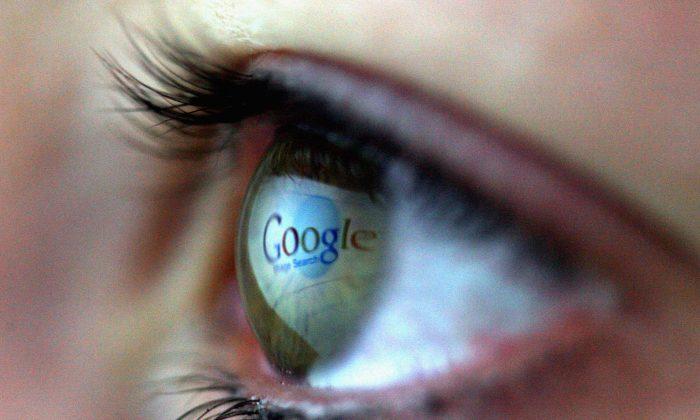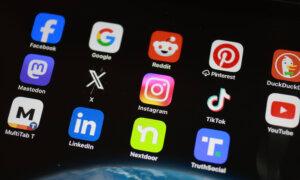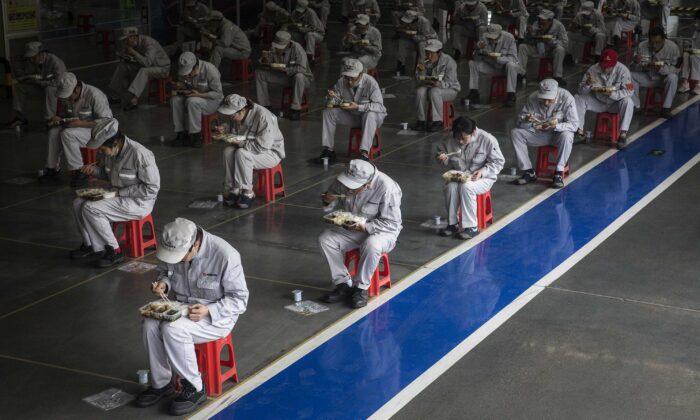Such confusing times, so much in dispute, so much to discover and know. Billions of people are right now lifting their phones to their faces and searching for answers. The results they see are dramatically different from what they were just a few years ago.
You have surely noticed that Google searches aren’t what they used to be. Or maybe you haven’t, and that’s the idea. For many years, we trusted Google to give us consensus results based on the standard of crowd-sourced credibility. While the system was imperfect, it worked well enough.
The ranking in Google search was based on the status of a website, which in turn was based on how many people used the site, how many and which sites linked to it, and how much traffic it consistently generated. As part of that, you could optimize your site’s results with the use of good keywords, site maps, clean structure, and stable links. Then you could win the game.
A whole industry emerged to help you achieve this, with every expert claiming to have cracked the code.
That system is officially over. What you see on search now is what elites want you to see. They are in charge and they pick and choose results based on political and cultural issues that affect nearly everything.
It’s hard to know precisely when it came to an end, but sometime in the past year or 24 months, the new system came to be codified. The new search results aren’t based on user experience. They are based on what someone thinks you should know. That someone is the usual gang, some amorphous bureaucrats who might be influenced by political concerns or might be deep-state agents themselves. Regardless, what you see is now what some authority wants you to see.
This isn’t an accident but the fulfillment of a plan. Some people simply could not handle the freedom that the web allowed. They had to smash it, cartelize it, censor it, and pound it into a system that serves power rather than the insatiable drive of human beings to know.
It’s possible to trace the tragic change from the past to the present by following the trajectory of various declarations that have been issued over the years. The tone was set at the dawn of the World Wide Web in 1996 by digital guru Grateful Dead lyricist and Harvard University fellow John Perry Barlow, who died in 2018.
“Governments of the Industrial World, you weary giants of flesh and steel, I come from Cyberspace, the new home of Mind. On behalf of the future, I ask you of the past to leave us alone. You are not welcome among us. You have no sovereignty where we gather.”
So on it went. His words defined the whole ethos of a generation of entrepreneurs and users. The internet would give us freedom and unlimited access to information. We would no longer be bound by authority and propaganda. The new “information superhighway,” as Al Gore called it, would emancipate humanity with unprecedented access, and this access would change the world, bringing ever-more progress toward free people and democracy the world over.
Fast forward a decade from the writing of the Internet Declaration of Freedom. The year is 2022 and we have been through a rough two years of account takedowns, particularly against those who doubted the wisdom of lockdowns or vaccine mandates.
The core of the new declaration is very clear and represents a good encapsulation of the essence of the structures that govern content today: “The Internet should operate as a single, decentralized network of networks—with global reach and governed through the multistakeholder approach, whereby governments and relevant authorities partner with academics, civil society, the private sector, technical community and others.”
Part of the goal of the new declaration is explicitly political: “Refrain from using the Internet to undermine the electoral infrastructure, elections and political processes, including through covert information manipulation campaigns.” From this admonition, we can conclude that the new internet is structured to discourage “manipulation campaigns” and even goes so far as to “foster greater social and digital inclusion within society, bolster resilience to disinformation and misinformation, and increase participation in democratic processes.”
Forget freedom. Control is the new watchword. What you want on the internet can no longer be reliably discovered by “Googling.” You have to use some other search engine, and every alternative amounts to a tiny percent of the market for search. The overwhelming majority of people don’t know this. Right now, if Google turns against you—and it certainly will if you are offering some other perspective besides the usual woke/leftist/regime narrative—you are pretty much toast in terms of traffic.
If you look up Brownstone Institute on Google, you will find the main site followed by a dozen totally obscure and ridiculous attacks, and none of the thousands of real sites that link to it. In other words, the system that served the web so well in the past is gone. It is now explicitly political, censored, and curated by regime-based interests.
As for the commercial end, it’s big businesses that rule. Small businesses do not stand a chance. Amish businesses are toast. Any political dissent is being disappeared. Alternative media is vanishing from search results. Substack is invisible. All top results are from venues controlled by the usual suspects. It’s all about managing the public mind. Sadly, it works well.
Think of it this way. The old information superhighway was a network of smaller roads that connected to smaller towns and train stations and presented a diverse picture of a wonderful country. The new system is like the interstate highways that were built in the late 1950s and ’60s, plowing over small towns, redirecting traffic away from organic routes, festooned with the same advertising from franchises in every corner, and all routes chosen for political reasons.
The whole internet is gradually being shaped into something different from how it began. It is becoming exactly what the Biden administration said it should be in 2022: a “multistakeholder” cartel, “whereby governments and relevant authorities partner with academics, civil society, the private sector, technical community and others.”
What’s ongoing right now is an attempt to build this structure into artificial intelligence so that no one has to manage it and there is no one to blame. Then an entire generation will come of age with a different system than what came before, something more akin to television in the 1970s: just a few channels with advertising, while the rest of us are reduced to getting the real news on ham radio.
It’s amazing that they could have done this to one of the wonders of the world. But the empire of evil never quits so long as freedom threatens to break out.
What to do about this? I wish I knew. I doubt legislation or antitrust can fix it. And this makes me very sad. We tolerated the cartelization of the digital world for far too long and now look where we are: The cartel was captured and the dream itself strangled by a ruling class.
What’s next? I wish I knew. My worry: The government will flat-out ban many domains. But I will stop there for fear of giving the bad actors any ideas.







